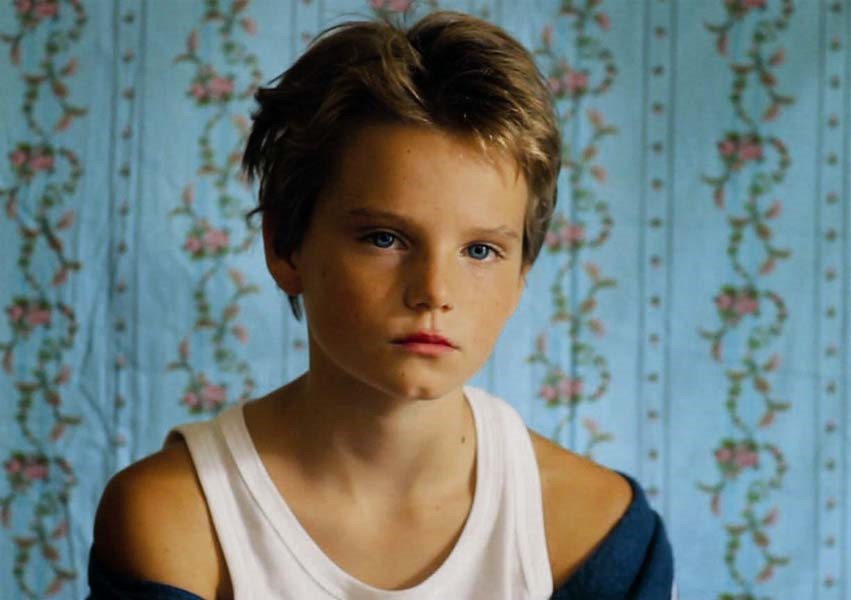The French director Céline Sciamma made waves four years ago with Water Lilies, a teenage drama that explored the burgeoning sexual desire between two teenage girls with a shared love for synchronised swimming...
The French director Céline Sciamma made waves four years ago with Water Lilies, a teenage drama that explored the burgeoning sexual desire between two teenage girls with a shared love for synchronised swimming. Her latest offering Tomboy goes even further back in childhood to portray the last innocent summer of androgynous 11-year-old Laure – a girl who tricks her peers into thinking she’s just another one of the boys. Interestingly, Sciamma doesn’t suggest some deep-seated psychological precursor for her protagonist’s lighthearted mendacity but simply creates an exquisitely shot and quiet meditation upon identity that recalls the playfulness of youth – when all of us are given to engage our imaginations in the pursuit of being someone else. In doing so, she creates an arena in which questions about the projection of others come into play with regard to the formulation of gender identity, but importantly, she doesn’t seek to supply her audience with any answers – it’s up to you to fill in the gaps. Here, the director speaks to John-Paul Pryor about the end of innocence, the pressures of adult projection and the climactic moment of childhood.
There is a suggestion in Tomboy that identity is something formed via the projections received from those around you…
Well, the film is partly about how the adult world defines you when you are a child, and that’s why for ten minutes the movie doesn’t tell you whether she’s a boy or a girl – you have to choose. Even if you know already when you come to watch the movie, you can still be in doubt when you look at her face. It’s interesting to explore identity at that age, and I think the film talks about everybody’s childhood. The movie talks a lot about the childhood life of boys generally, because every boy feels under pressure to act like ‘a boy’, so even the real boys are playing at being boys. I had a lot of testimonies from men who have seen it saying, ‘Whoa, this is my childhood!’ That’s what’s really fun about the movie – how people relate to it.
What made you want to investigate the desire of children to be somebody else?
I guess I’m kind of obsessed with these kinds of subjects because they touch me in an intimate way. I just can’t help telling those stories. But it’s a good thing because they are stories that haven’t been told much, so you feel like you’re doing something really original. I mean, because the movie talks about childhood mostly – not about some narrow problem the child has – it’s quite universal, because it’s a phase in life when everybody pretends to be somebody else, you know? It is very open to interpretation and I really wanted it to be that way. The movie’s not about psychology at all. It’s not about why she’s doing this – she never tells. That’s not because it wants to avoid the question ‘why’, but just because I want to raise the question. That way everybody can connect and make up their minds as to whether this is the beginning of a radical journey or just a phase.
Do you see yourself as someone continuing in a tradition of French cinema?
Well, there’s a great tradition of childhood stories in French cinema – I guess Truffaut’s 400 Blows being the most famous – but I like to think of myself as being in the middle of the French and American tradition. I like the sensitive look of traditional French films and the fact that the children are often portrayed as rebels, but I also like the way the American tradition stylises everything and is full of fantasy around childhood.
How much does the film draw upon your own life?
When I began to write, I had to go back to the feelings and the sensation of that period of time. I was kind of a tomboy when I was the age of the character. I could be mistaken for a boy – sometimes I found it cool and sometimes I found it hard, but I remember the excitement. It’s not my story, though. I wasn’t looking for the ambiguity as a child, it was just the era – lots of little girls really had short hair in the 80s. There was more androgyny back then, and I think childhood lasted longer at that time. I think I was a child at 12-years-old, which seems amazing today. I suppose the movie is really about the end of childhood – the climactic moment of childhood that buries it forever. It’s just the last time she can do such a thing, and it’s the last time that it’s an innocent game.
Tomboy is currently showing in cinemas nationwide.
